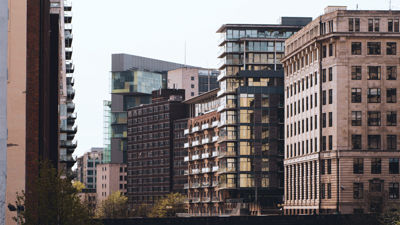|
This afternoon (Monday 10th January 2022), the Secretary of State for Levelling Up, Housing and Communities, Rt. Hon. Michael Gove gave a statement to the House of Commons, confirming an ‘overhaul’ of the Government’s approach to the building safety crisis.
The statement marks a ‘resetting’ of government policy, with the relatively new Department for Levelling Up, Housing and Communities (DLUHC) team demonstrating a new commitment to fixing unsafe and dangerous buildings as soon as possible, while keeping costs to a minimum for leaseholders living in those buildings.
The details of the new approach come ahead of the Building Safety Bill returning to the House for Report Stage, and include:
To watch a recording of Mr Gove’s statement: Click here and set the media player to 15:34.
11M-18M FUNDING SPECIFICATIONS:
DEVELOPER’S CONTRIBUTIONS:
In his letter to developers today (Monday 10th January), Gove set out three asks and expectations:
1. Agree to make financial contributions this year and in subsequent years to a dedicated fund to cover the full outstanding cost to remediate unsafe cladding on 11-18m buildings, estimated currently to be £4bn;
2. Fund and undertake all necessary remediation of buildings over 11m that you have played a role in developing (i.e. both 11-18m and 18m+). Any work undertaken by developers themselves on 11-18m buildings will reduce the total cost of cladding remediation that has be paid for through the proposed 11-18m fund; and
3. Provide comprehensive information on all buildings over 11m which have historic fire-safety defects and which you have played a part in constructing in the last 30 years.
Nigel Glen, CEO of the Association of Residential Managing Agents, and Andrew Bulmer. CEO of the Institute of Residential Property Management, who have been at the helm of an industry building safety campaign to represent the concerns and views of members and their leaseholders, have welcomed today’s announcement, commenting:
"As early supporters of the "Polluter Pays" principle, ARMA and IRPM congratulate the Government on its decision to scrap the proposed sub-18m loan scheme in favour of grants. This will remove the threat of potentially life-changing bills for leaseholders and allow them to get on with their lives, in a building that is safe.
“The Government’s intention to bring a much-needed sense of risk proportionality back into the approach to the building safety crisis is also to be applauded, and something that our industry has been calling for.
“Of course, there are critical delivery details still to be worked out such as industry capacity to assist with the ‘acceleration’ of the remediation programme, and we look forward to understanding how other building defects, including compartmentation and any external wall system structural issues, will be dealt with.
“At present, it appears that the government is expecting the developer or other causal entity (the 'polluter') to pay. Extending the claim period for defective buildings to 30 years is helpful. However, if the responsible party does not volunteer to remedy, and if Mr Gove cannot persuade them to do so, it will remain a huge challenge for leaseholders to litigate against a resistant developer and construction sector.”
Government has asked ARMA & IRPM members to hold back on issuing Section 20 Notices or related invoices to leaseholders for works which will now be covered by the £4 billion fund. |
|
|
|
|


